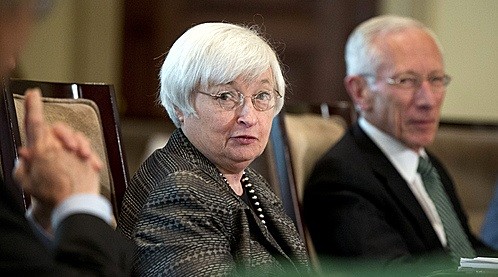
[Special Economy=Eunji Kim]The Federal Reserve's decision to hike U.S. zero-interest rate by at least 0.25% will be confirmed by this week and Korea has fallen into a difficult situation of whether to follow America's path—or not.
There's a prediction that the Bank of Korea will also do the same by the second half of next year.
Analysts say this call will be determined by Korea's economic situation rather than the U.S. interest rate trend.
One news agency surveyed 10 researchers, university professors and finance experts to ask about when Korea could raise its interest rate.
They forecasted that the current interest rate of 1.5% will stay as it is into the first half of next year. According to them, that's because Korea's economy has not recovered yet and the sudden surge in household debts is creating a burden on consumers having to pay the interest rate, in turn negatively affecting the real estate market.
"Just because the United States raised its interest rate doesn't mean we have to do the same," said Im Jin, macroeconomics researcher. "It will take time for Korea to do follow what America did."
The problem is: if the current economic slowdown in Korea continues, the Bank of Korea won't be able to hike its interest rate.
There's even an analysis that to stop Korea's economy from slowing down further, the interest rate has to be cut, than frozen for a longer period.
"The Bank of Korea has to think about the outflow of capital, value of currency, difference of domestic and foreign interest rate to calculate when to do the hike," said Kim Jeong Sik, Yonsei University professor.

